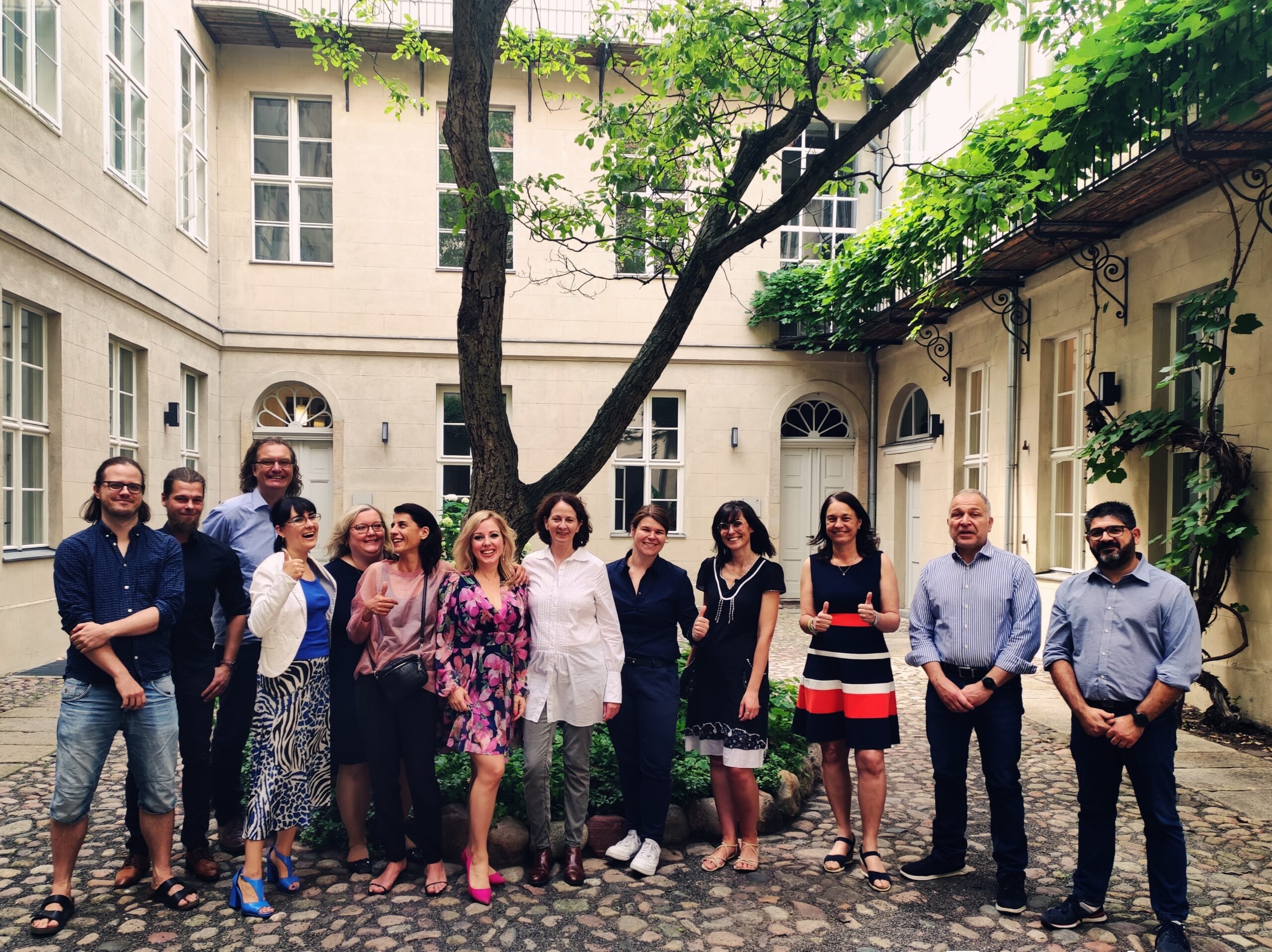upgrade2europe
upgrade2europe
Many small and medium sized companies and organisations face challenges that hinder them in going to the European market. Among others such hindering factors could be the lack of training in field of Europeanisation, high costs of external consultation, and the lack of resources and institutional readiness.
The upgrade2europe (Ref. No: 2020-1-DE02-KA202-007626), co-funded by the Erasmus+ Programme and being implemented between 01.10.2021 and 31.05.2023, intends to provide an answer to these challenges. Its aim is to provide educational actors, SMEs and SMOs with the necessary materials to develop and implement their own Europeanisation strategies, thus intensifying their activities in Europe across national borders.
The project has 3 main target groups:
- Educational providers from vocational and adult education
- Small and medium sized organisations, e.g. foundations and associations, are particularly relevant for the development of civil society in Europe
- Small and medium sized enterprises
Content Developed
In order to support the target groups, the partnership will develop numerous professional contents during the lifetime of the project. They are as follows:
- Process Model that includes the theoretical basis of the target groups’ Europeanisation
- Necessary knowledge, skills and competences for the independent Europeanisation and further organisational upgrade presented in the thematic blocks of the EQF curriculum
- Handbook that articulates suggestions It will include suggestions for Europeanisation actions depending on the maturity level of the respective organisation
- The Teaching and Learning Videos will present the overview of thematic blocks details in the curriculum
- Digital Self-Assessment Tool based on the further development of the Europeanisation Tool
- 10-12 learning units sent weekly as an e-mail course
The members of the target groups will encounter several positive impacts of the developed tools, like they can stay competitive, strengthen their market position, create new work places, broaden their training offer, and contribute to strengthening the European economic area.
Partners Involved
Institutions that take part in the implementation of the project:
- emcra GmbH (Germany)
- Cyprus Project Management Society (Cyprus)
- European Center for Quality Ltd. (Bulgaria)
- Promozione Internazionale Sicilia–Mondo (Italy)
- EU-Fundraising Association e. V. (Germany)
- Chamber of Commerce and Industry Csongrád County (Hungary)
- Tallinn University of Technology (Estonia)

